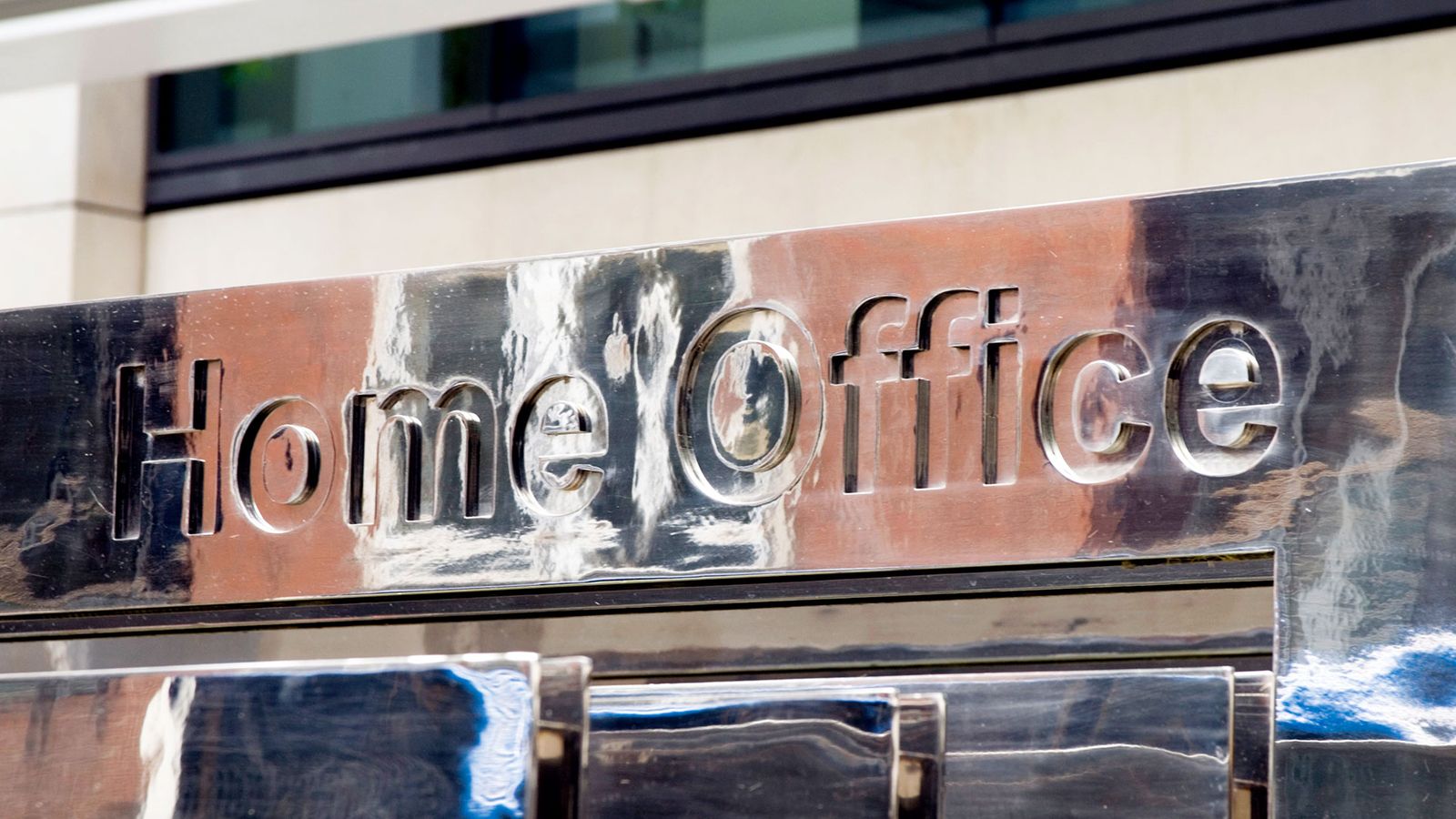The Home Office gave 275 certificates of sponsorship for care workers to a care home that didn’t exist, a damning report into the department has shown.
The probe, by the former borders and immigration inspector David Neal, claimed the Home Office had a “limited understanding” of the care sector after it was added to the UK’s shortage occupation list in 2022 – allowing more people to come to the country to fill jobs.
And as a result, it created a system that “invited large numbers of low-skilled workers to this country who are at risk from exploitation”.
Politics live: Sunak asked if he was part of the ‘deep state’ after Truss remark
The report was released on Tuesday afternoon as MPs wrapped up business in parliament for the Easter recess, alongside another into Border Force operations at London City Airport.
In that investigation, Mr Neal highlighted “failings at a local, regional, and national level” over the arrival of private jets, with high-risk flights not being met by Border Force staff.
The figures on how many high-risk flights were met by officials at the most central airport in the capital were redacted, but Mr Neal said the number was “shocking”, adding the issue needed to be addressed by the Home Office “as a matter of urgency”.
Home Secretary James Cleverly spent £165,000 on private chartered flight to Rwanda
Sacked inspector’s damning reports expose chaotic and dysfunctional Home Office
Britain’s border protection ‘neither effective nor efficient’, report by sacked inspector David Neal says
Mr Neal was fired by the Home Office last month after he leaked details of the City Airport report to a newspaper, with the department saying he had “lost the confidence” of Home Secretary James Cleverly.
But the now ex-inspector had repeatedly complained the Home Office was too slow to publish his critical reports, with 15 dating back to April 2023 still unpublished when he was dismissed.
Keep up with all the latest news from the UK and around the world by following Sky News
In Mr Neal’s report, entitled “An inspection of the immigration system as it relates to the social care sector”, he criticised the department’s “underestimation of demand for the care worker visa”.
While the Home Office had predicted between 6,000 and 40,000 would come through this route each year, between February 2022 and October 2023, 160,991 applications had been made and 146,182 – 91% – had been granted.
The report criticised “the inappropriateness of its sponsor licensing regime for low-skilled roles”, and said the “mismatch between its meagre complement of compliance officers and ever-expanding register of licensed sponsors” – with one officer for every 1,600 employers – was “totally inadequate”.
In the example of an employer only known as “company b”, an application had been submitted using forged documents in the name of a real care provider, and a forged bank statement.
But despite online checks showing the address they provided showed “no trace” of links to a care home, 275 certificates of sponsorship had been secured, with 181 assigned to workers, “none of whom have arrived to undertake genuine roles”.
It took more than two months after the sponsorship licence was granted to the company for Border Force officers to raise their concerns about those arriving on the visas.
Be the first to get Breaking News
Install the Sky News app for free
Another example included 1,234 certificates being granted to a company that said it had only four employees when it was given a sponsorship licence.
“In just these two examples, up to 1,500 people could have arrived in this country and been encouraged by a risk of hardship or destitution to work outside the conditions of their visa,” said Mr Neal.
“While the inspection does not detail the extent of this abuse, my inspectors encountered migrants with care visas working illegally in two out of eight enforcement visits they observed during my inspection of illegal working enforcement [from] August to October 2023.”






















